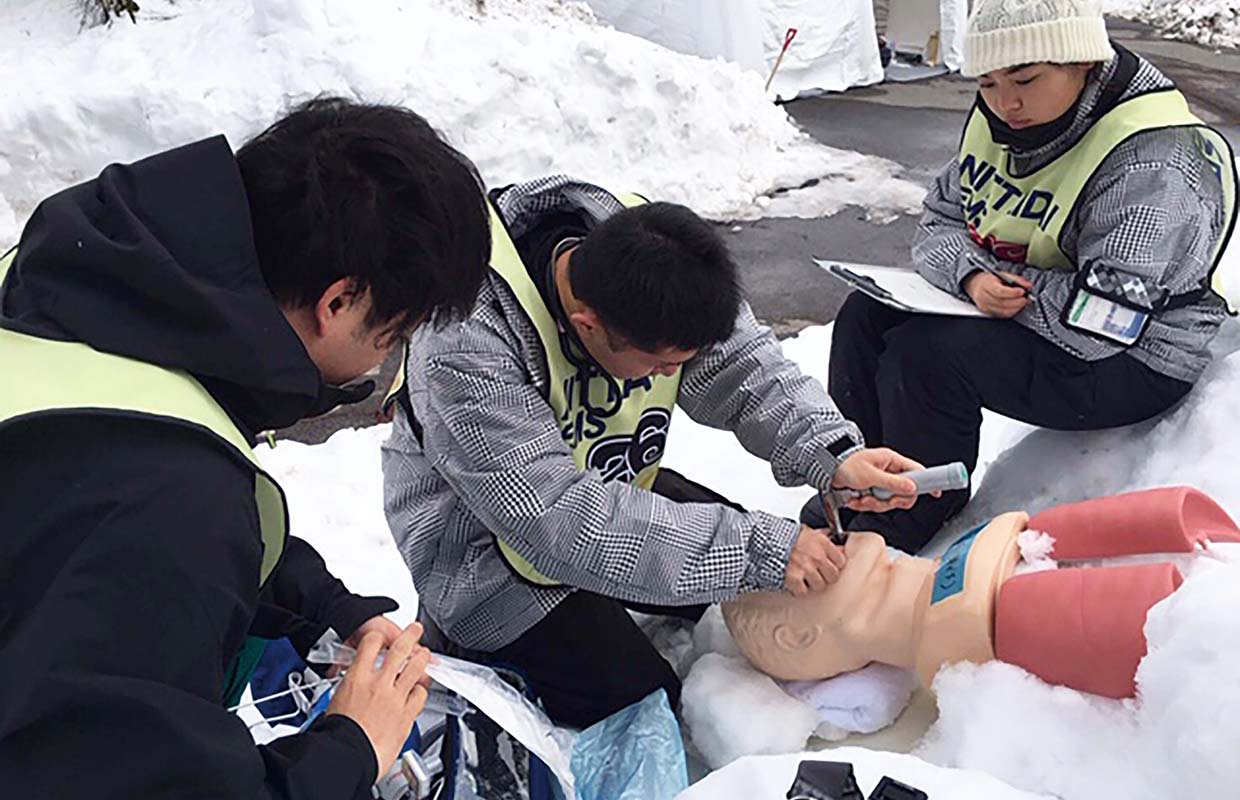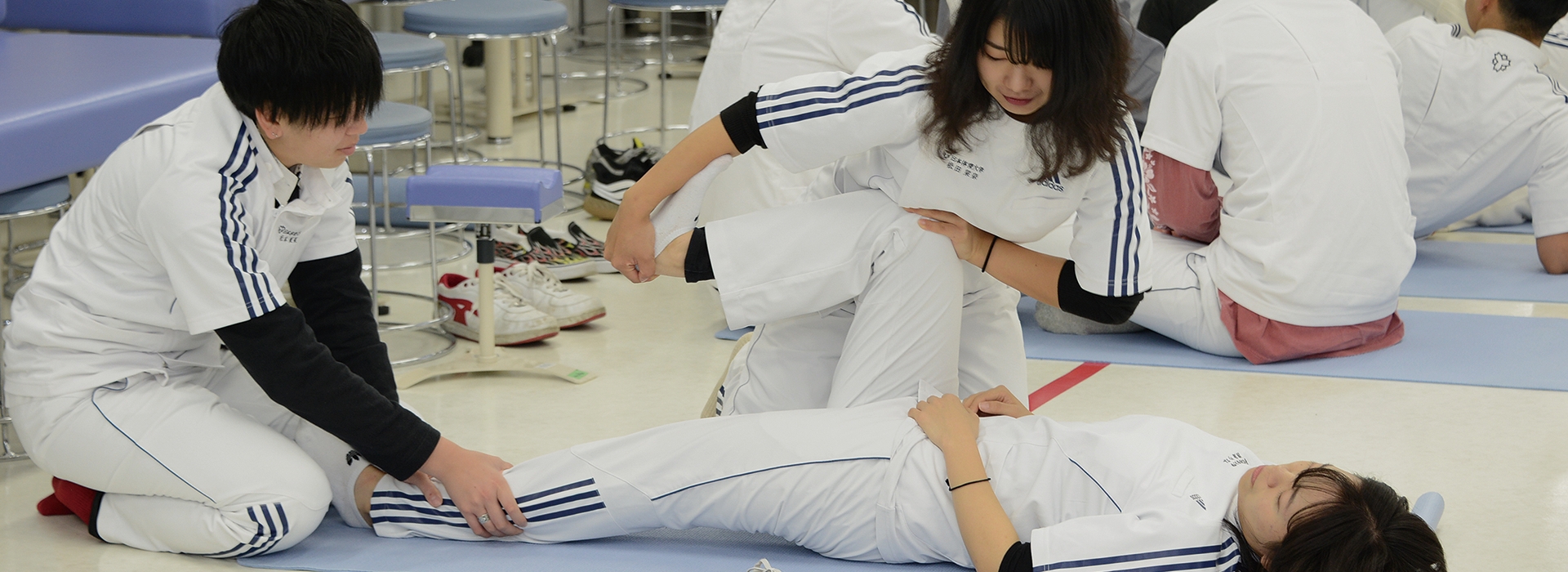
Faculty of Medical Science
Become medical professionals specializing in physical exercise and sports, and make an impact in the fields of judo therapy and emergency medical care.
Talent development vision
The Faculty of Medical Science’s curriculum is designed for the students to learn advanced expertise and clinical techniques that are essential in today’s healthcare, along with the comprehensive skills and mindset that are required of emergency medical
care practitioners such that the students can become nationally certified professionals in these fields. The students receive the proper education and training they need to become medical professionals that can help improve their patients’ quality of
life (QOL), while having the considerate and kind mental capacity to notice and emphasize with their pain.
Targeted skills

Department of Judo Therapy and Medical Science
Systematic course structure and sufficient practicums allow the students to obtain licenses in specialized fields for future career development.
At the Department of Judo Therapy and Medical Science, the curriculum includes not only the systematically arranged courses that prepare the students for a career as a judo therapist but also many other diverse practicums that are equally helpful. The
students may obtain multiple specialist qualifications that are suitable for their career plans.
Clinical practicum
Clinical practicums are chiefly held at the NSSU Sports Cure Center, which is located on the Yokohama Kenshidai Campus and is used by a number of patients mainly consisting of NSSU athletes. There are also other clinical practicums available that are conducted on sites where sporting activities are held.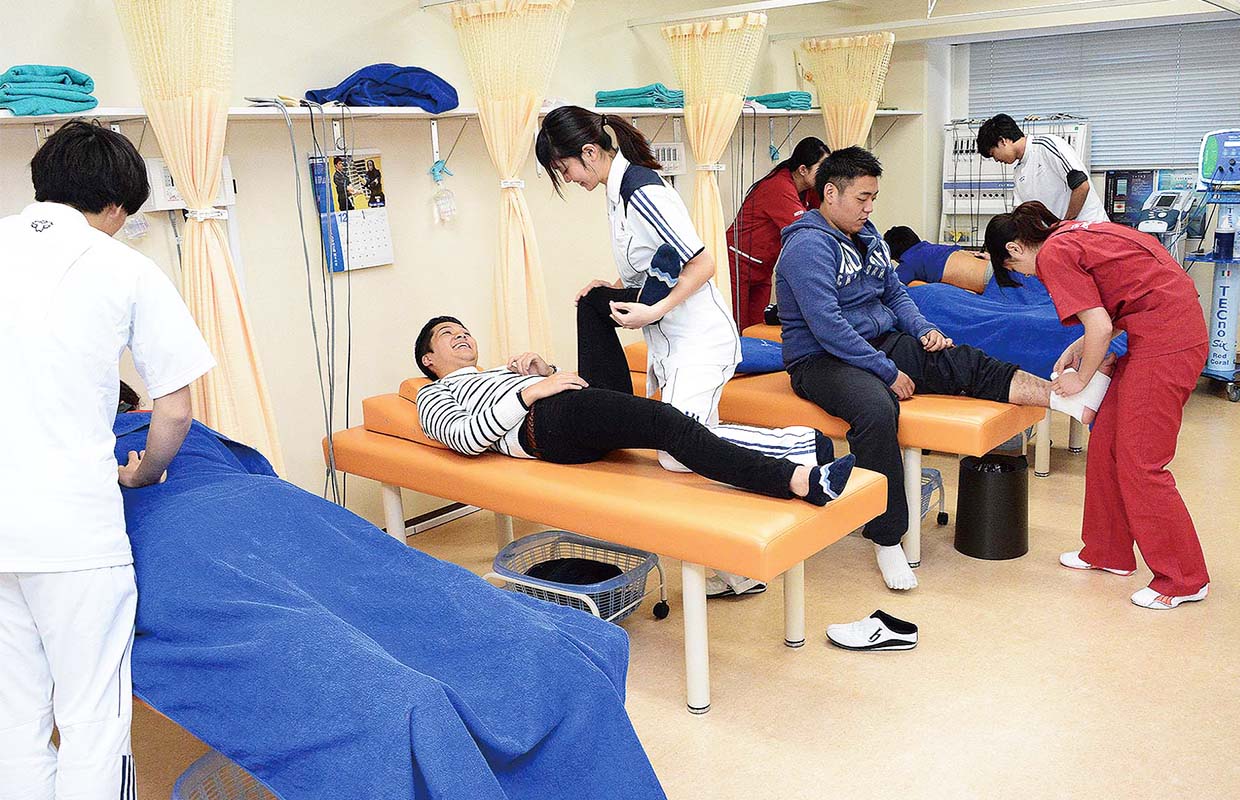
Outdoor activity practicum
This is the outdoor activity practicum that the first-year students go on, which takes place on a remote high plain and lasts for a total of four days. During the practicum, the students receive practical training that allows them to hone professional skills for engaging in sporting activities as trainers and performing safety management and conditioning tasks in sports, while also gaining firsthand experience in the provision of health exercise instructions.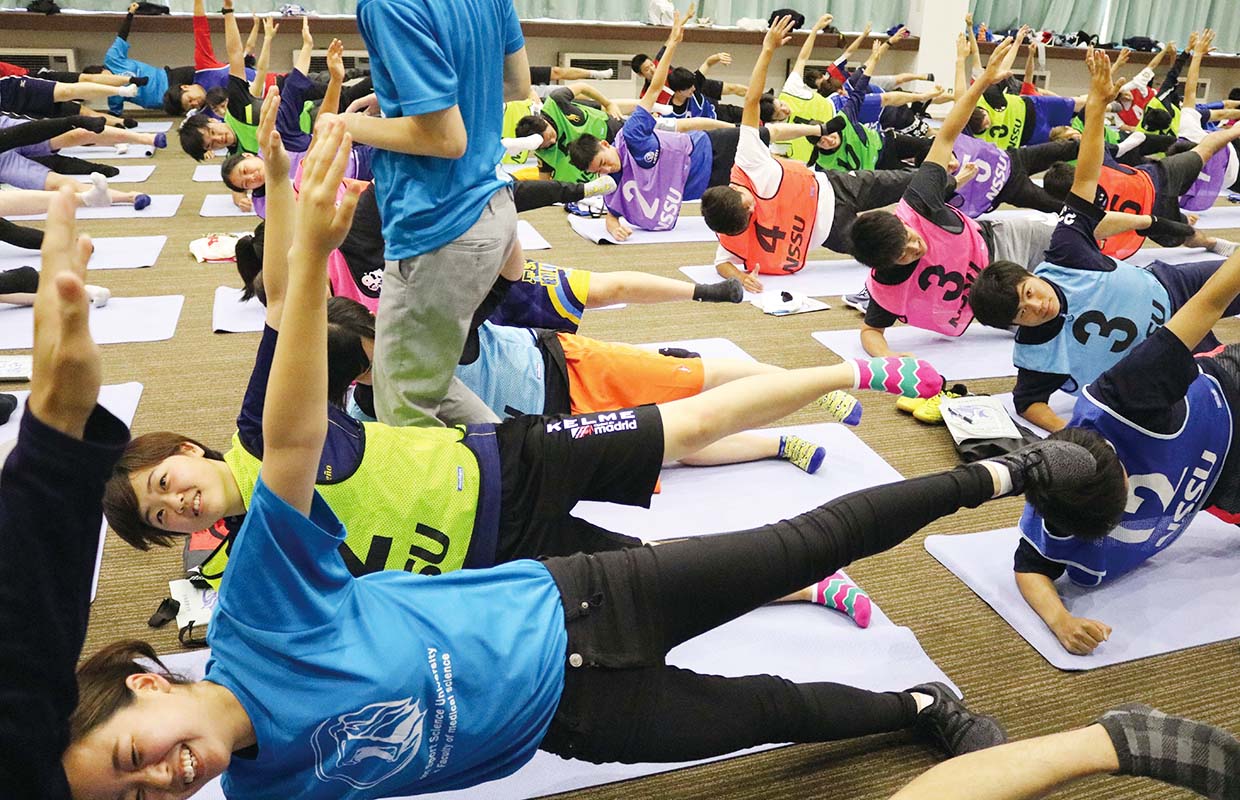
Comprehensive judo therapy and medical science practicum abroad
This is the essential practicum for the students aspiring to thrive professionally on the world stage, leveraging their judo therapy skills. For this practicum, the students travel to the U.S. and interact with a whole range of medical staff members, sports instructors, etc. that are successful in various professional sports or at different types of training facilities to learn the latest information and insights on the profession of a trainer along with practical skills that are relevant. The students will also have opportunities to watch professional sporting games and tour the backstage.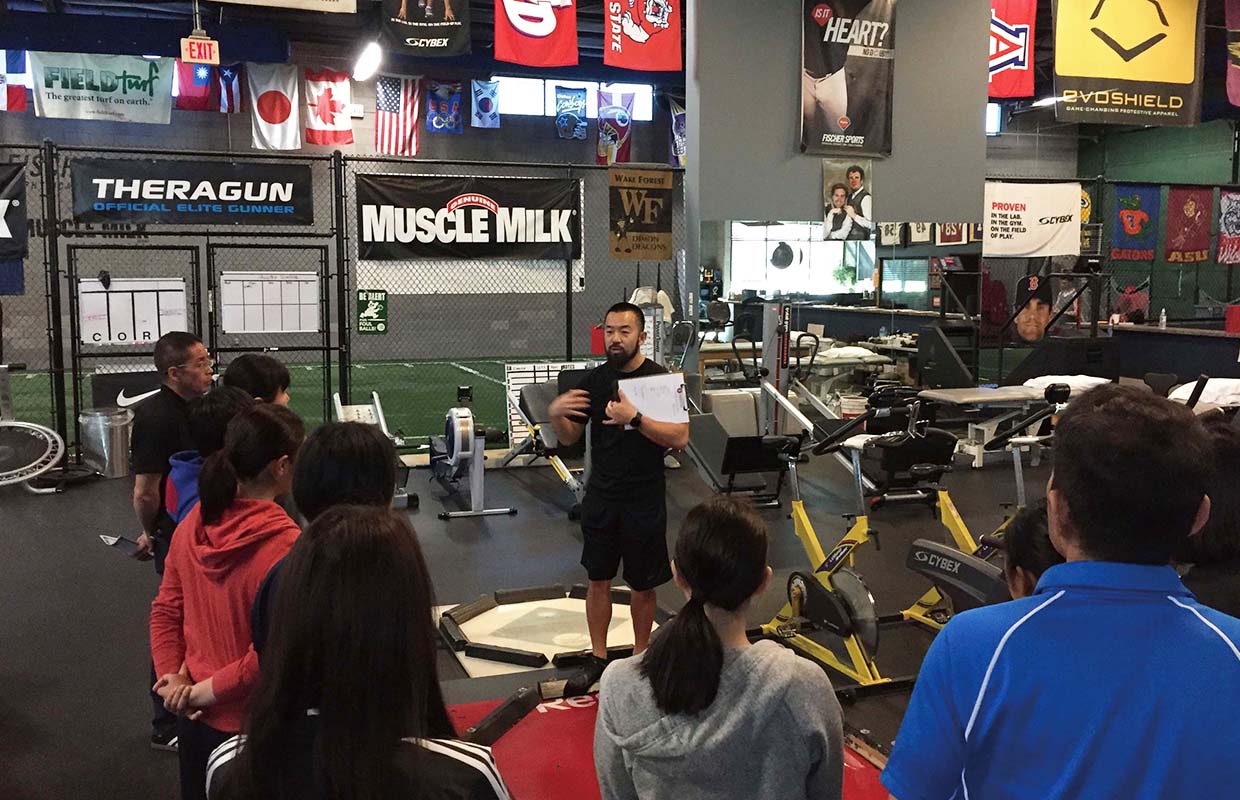
Qualification obtainment
The students that complete the curriculum at the Department of Judo Therapy and Medical Science may obtain the following qualifications, etc.- Judo therapist (eligibility for examination)
- Japan Sport Association common subjects I, II, and III exempted (new curriculum application in progress)
- Japan Sport Association-certified athletic trainer (eligibility for examination)
- Japan Association of Training Instructors-certified training instructor (eligibility for examination)
Department of Emergency Medical Science
Become an emergency life-saving technician that plays a key instructional role in pre-hospitalization care.
The curriculum integrates quality general-knowledge courses and truly specialized practical education taught by renowned instructors, producing complementary and synergistic effects.
This medical science department at NSSU wields the same outstanding educational capacity despite the ongoing coronavirus pandemic.
The curriculum integrates quality general-knowledge courses and truly specialized practical education taught by renowned instructors, producing complementary and synergistic effects.
This medical science department at NSSU wields the same outstanding educational capacity despite the ongoing coronavirus pandemic.
Three pillars of the Department of Emergency Medical Science
1. Emergency medicine
[Practical simulation practicum]
This simulation practicum fully recreates actual emergency medical care activities and is taught by emergency medicine specialists that possess a wealth of clinical experience and competent teaching skills, which also entails learning and implementation of effective infectious-disease prevention measures.
This simulation practicum fully recreates actual emergency medical care activities and is taught by emergency medicine specialists that possess a wealth of clinical experience and competent teaching skills, which also entails learning and implementation of effective infectious-disease prevention measures.
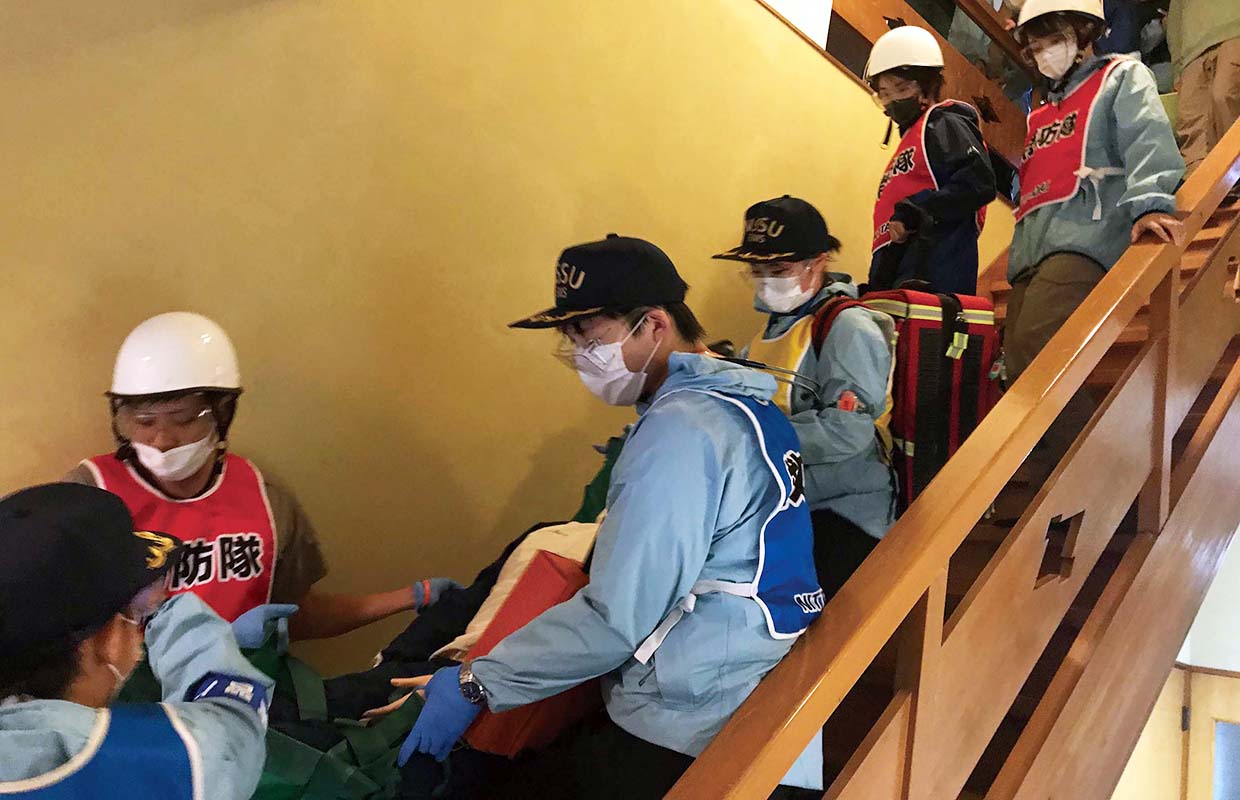
2. Resuscitation medicine
[Practicum that affords precious and rare opportunity to learn world-leading emergency medicine]
For this practicum, paramedics representing MedicOne at the University of Washington’s Harborview Medical Center that are on the forefront of emergency medicine in Seattle, Washington, U.S. are invited each year to teach knowledge and provide technical instructions on cutting-edge resuscitation medicine.
For this practicum, paramedics representing MedicOne at the University of Washington’s Harborview Medical Center that are on the forefront of emergency medicine in Seattle, Washington, U.S. are invited each year to teach knowledge and provide technical instructions on cutting-edge resuscitation medicine.
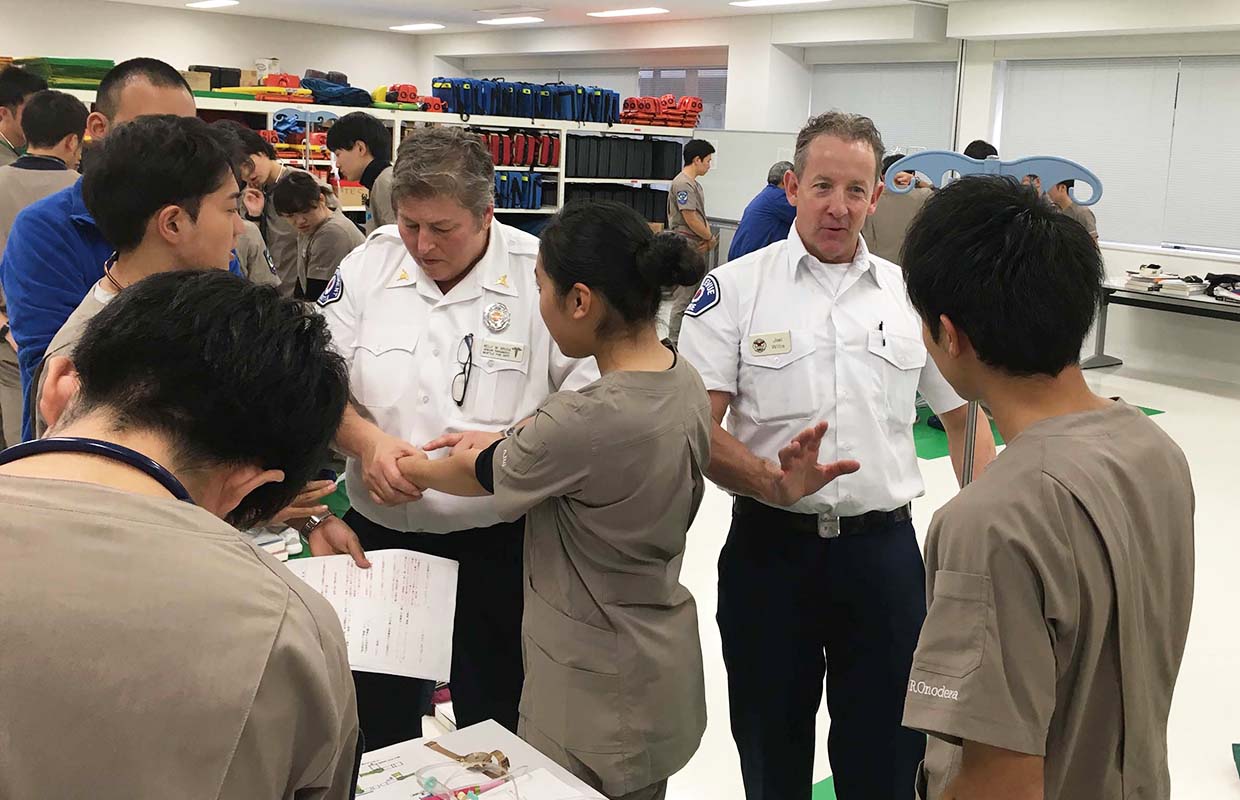
3. Disaster medicine
[Outdoor activity practicum in various environments]
This practicum—which is designed to teach the knowledge and skills to recognize the treacherous characteristics of nature and effectively deal with any types of disasters it could cause—takes the students out into various outdoor environments such as sea, snow-covered mountains, rivers, and mountainous areas to prepare them for diverse scenarios of compound disasters.
This practicum—which is designed to teach the knowledge and skills to recognize the treacherous characteristics of nature and effectively deal with any types of disasters it could cause—takes the students out into various outdoor environments such as sea, snow-covered mountains, rivers, and mountainous areas to prepare them for diverse scenarios of compound disasters.
